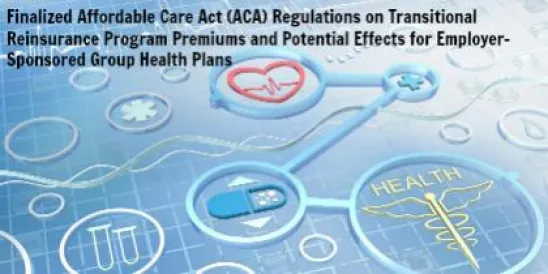THIS WEEK’S DOSE
Congress was in session for a final week of legislative business before the two-week Independence Day recess. The House brought a small-business-focused healthcare bill to the floor, approving it along party lines. Health-related activity also continued at the committee level, including hearings in the House Energy and Commerce Committee on substance use legislation and oversight of the Medicare Access and CHIP Reauthorization Act (MACRA), and a House Education and the Workforce Committee hearing on competition and transparency. FY 2024 appropriations markups also continued in both the House and Senate. We still await the release of several CY 2024 payment rules from the Centers for Medicare & Medicaid Services (CMS), including the proposed physician fee schedule and the proposed hospital outpatient prospective payment system rule.
CONGRESS
House Approves Healthcare Legislation. On June 21, the House considered and advanced the Custom Health Option and Individual Care Expense (CHOICE) Arrangement Act (H.R. 3799), a package of small-business-focused healthcare bills that were recently advanced by the Committee on Ways and Means and the Committee on Education and the Workforce.
H.R. 3799 would promote the formation of multi-trade and interstate employer groups that can offer association health plans, assist small businesses in establishing self-funded health plans by preventing states from blocking small businesses from obtaining stop-loss insurance, and codify regulations set forth by the Trump Administration that allow employees to use employer-financed health reimbursement arrangements to purchase insurance plans on state exchanges. It would also require the US Department of the Treasury to notify small businesses of different health coverage options available to them.
While the bill was approved on the House floor by a party-line vote of 220–209, the Senate is not expected to take up the bill, given the Senate’s Democratic majority and the partisan nature of the bill’s passage in the House.
House Energy and Commerce Committee Examines Substance Use Support Bills and Discusses MACRA Implementation. On June 21, the House Energy and Commerce Health Subcommittee held a legislative hearing on efforts to build upon the Substance Use-Disorder Prevention that Promotes Opioid Recovery and Treatment (SUPPORT) Act. Enacted in 2018, the SUPPORT Act is a comprehensive bipartisan effort to address substance use disorder treatment, prevention and recovery.
The subcommittee heard testimony from Administration officials from relevant divisions of the US Department of Health and Human Services (HHS) and the US Drug Enforcement Administration about how their agencies have used SUPPORT Act funds and how SUPPORT Act programs can be improved.
With key provisions of the law set to expire at the end of FY 2023, the hearing agenda included a slate of 27 bills that would reauthorize and improve upon various SUPPORT Act provisions. Committee members and witnesses evaluated the effectiveness of various legislative solutions in managing the substance use disorder crisis and sought to address issues such as the rise of dangerous street drugs, access to medication-assisted treatment, the need for increased prevention efforts, and the management of behavioral health needs of individuals transitioning in and out of the criminal justice system.
The Telehealth Benefit Expansion for Workers Act (H.R. 824) was also on the agenda. H.R. 824 would treat benefits for telehealth services offered under a group health plan or group health insurance coverage as excepted benefits. The bill was recently advanced by the House Committee on Education and the Workforce, and is now being taken up by the Energy and Commerce Committee, which shares jurisdiction. While H.R. 824 did not receive much attention given the large number of SUPPORT-related bills on the agenda, its inclusion in the legislative hearing now tees up the bill to be marked up by the committee.
On June 22, the Subcommittee on Oversight and Investigations held a hearing titled “MACRA Checkup: Assessing Implementation and Challenges that Remain for Patients and Doctors.” The hearing examined the implementation and effectiveness of MACRA, the 2015 law that aimed to shift the focus of Medicare reimbursement from volume to value.
The subcommittee heard from a panel of stakeholder and expert witnesses who discussed various aspects of MACRA, including the Merit-based Incentive Payment System, Advanced Alternative Payment Models (APMs), and the roles of the Center for Medicare and Medicaid Innovation and the Physician-Focused Payment Model Technical Advisory Committee in the development and approval of APMs. Subcommittee members and witnesses also discussed MACRA’s impacts on independent doctors and in rural and underserved areas.
House Education and the Workforce Committee Holds Hearing on Healthcare Competition and Transparency. On June 21, the House Education and the Workforce Subcommittee on Health, Employment, Labor, and Pensions held a hearing on competition and transparency in the healthcare market. The hearing focused on the issue of rising healthcare costs as a result of pharmacy benefit managers (PBMs) and hospital consolidation. The committee also discussed solutions focused on transparency for PBM audits and hospital charges, and on anticompetitive practices.
During the hearing, there was bipartisan support for increasing transparency around PBMs and hospital charges, and consensus on the need to address hospital consolidation as a driver of rising healthcare costs. This Education and Workforce Committee hearing follows previous hearings on these topics in the other key healthcare committees in both the House and Senate.
FY 2024 Appropriations Work Continues. The full House Appropriations Committee maintained its rapid pace and advanced four more FY 2024 bills: Legislative Branch, Homeland Security, Defense, and Energy and Water. Across the Capitol, the full Senate Appropriations Committee advanced its first two bills this week: the Military Construction-Veterans Affairs bill and the Agriculture, Rural Development, and Food and Drug Administration bill.
The Senate Appropriations Committee also set its subcommittee spending allocations with caps in line with the recent debt limit agreement, although committee Republicans expressed dismay at being shut out of the allocation discussions and at the limits in defense spending. The committee approved the spending totals in a vote along party lines, while also stating the importance of reaching a bipartisan agreement on additional funds as the FY 2024 appropriations process continues.
The Senate spending allocations are higher than those being advanced in the House, where the Republican majority is using the debt limit numbers as a ceiling on what can be spent, rather than a floor. These differing spending levels set the House and Senate on an appropriations collision course, as the September 30 end of the fiscal year—and the threat of a government shutdown that comes with it—quickly approaches.
ADMINISTRATION
CMS Releases TCET Notice with Comment Period. On June 22, CMS issued a proposed procedural notice outlining a new Medicare coverage pathway to achieve more timely and predictable access to new medical technologies for people with Medicare. The new Transitional Coverage for Emerging Technologies (TCET) pathway for breakthrough devices supports both improved patient care and innovation by providing a clear, transparent and consistent coverage process while maintaining robust safeguards for the Medicare population.
The TCET pathway uses current national coverage determination and coverage with evidence development processes to expedite Medicare coverage of certain breakthrough devices. TCET is voluntary and aims to reduce uncertainty about coverage options through a pre-market evaluation of technologies’ potential harms and benefits while identifying any important evidence gaps. The pathway includes an evidence development framework that provides manufacturers with opportunities for increased pre-market engagement with CMS, and allows for any evidence gaps to be addressed through fit-for-purpose studies.
A fact sheet from CMS contains additional details. The public will have 60 days to provide comment on the procedural notice, and CMS will respond to public comments in a subsequent final notice.
Biden Administration Announces Public-Private Partnership to Expand Access to Contraceptive Care. As the one-year anniversary of the Supreme Court of the United States decision overturning Roe v. Wade approaches, the Administration announced a public-private partnership between HHS and the national nonprofit Upstream to expand access to contraception and address the growing disparities in women’s health. HHS and Upstream will focus on identifying areas of high need for contraceptive care through a five-year agreement.
According to HHS, the partnership will help providers receive free technical assistance, training and education on contraceptive care in primary care settings. Over the course of the partnership, HHS and Upstream will work collaboratively to strengthen health systems and healthcare provider settings with the goal of promoting comprehensive patient-centered care for all people of reproductive age.
With the approaching June 24 anniversary of the Supreme Court’s decision, congressional Democrats continue to keep the issue top-of-mind through messaging votes in the Senate and procedural tactics in the House.
HHS Issues Advisory on Mental Health and Long COVID. On June 21, HHS issued an advisory on mental health symptoms and conditions related to long COVID. The advisory discusses the epidemiology of mental health symptoms and conditions of long COVID, and provides evidence-based resources for their assessment and treatment.
The advisory notes that mental health conditions associated with long COVID include fatigue, sleep disturbances, depression, anxiety, psychosis, cognitive impairment, obsessive compulsive disorder and post-traumatic stress disorder. It also notes that social determinants of health can exacerbate the negative impact of COVID-19 and long COVID for certain groups.
QUICK HITS
-
The US Government Accountability Office issued a request for nominations to the Health Information Technology Advisory Committee (HITAC). Letters of nomination and resumes are due by July 31. HITAC members serve three-year terms, and appointments will be effective January 1, 2024.
-
The US Preventive Services Task Force (USPSTF), an independent panel that makes evidence-based recommendations about preventive services, issued a recommendation statement regarding anxiety disorders in adults. The USPSTF statement includes a new recommendation that adults 64 and younger be screened for anxiety disorders. Regarding adults 65 and older, USPSTF concluded that the current evidence is insufficient to assess the balance of benefits and harms of screening for anxiety disorders.
-
Pharmaceutical Research and Manufacturers of America (PhRMA) filed a lawsuit against HHS, challenging the Inflation Reduction Act’s Medicare drug price negotiation provisions. The suit follows similar challenges recently filed by Merck & Co, the US Chamber of Commerce and Bristol-Myers Squibb. PhRMA was joined by the National Infusion Center Association and the Global Colon Cancer Association in the filing.
NEXT WEEK’S DIAGNOSIS
Congress is in recess until the week of July 10. We plan to publish one Check-Up during the two-week recess in order to cover the expected release of annual CMS payment rules. Exact timing will depend on the agency’s proposed rule release schedule.




 />i
/>i

